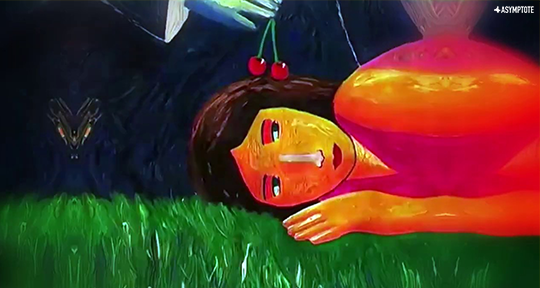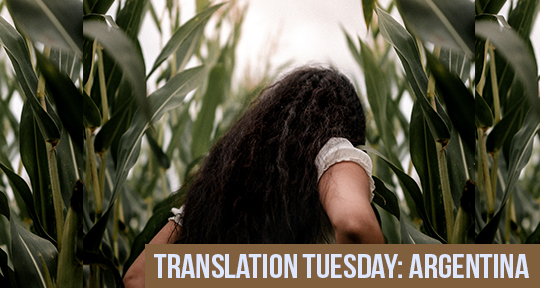March 8th is International Women’s Day, and we wanted to take the opportunity to lift up the work of women in world literature. Below, find a selection of pieces published on the blog in the past year, across essays, reviews, translations, and interviews, curated to represent the breadth and brilliance of women working in writing.
Interviews
A Conversation on Kurdish Translation with Farangis Ghaderi
by Holly Mason Badra
But when you look deeper, when you look at archives, and look at early Kurdish periodicals, you find women. You discover these forgotten voices. An interesting example of that is Zeyneb Xan, who published under the pseudonym of Kiche Kurd (“Kurdish girl”). In 2018, when a publisher was reprinting Galawej (the first Kurdish literary journal published in 1939–1949), they decided to have sections on contributing writers. They came across this name, and one of the researchers working on the project uncovered that the identity of the writer was Zeyneb Xan (1900–1963), the eldest sister of Dildar—a very well-known figure of Kurdish literature who wrote the Kurdish anthem. Although her family was a literary family and at the center of literary attention, her manuscript remained unpublished until 2018. Her truly fascinating poetry collection covers a wide range of themes from patriotism to women’s education and liberation.
Wild Women: An Interview with Aoko Matsuda and Polly Barton
by Sophia Stewart
For me, films and television programs, as well as books and comics, have always been the places where I can meet outsider women, weirdo women, rebel women, sometimes scary women. When I was a child, I didn’t care if these women were human beings or ghosts or monsters, and I didn’t care if they were from Japan or other countries. I was just drawn to them, encouraged by their existence.
To Protect Oneself From Violence: An Interview with Mónica Ojeda
by Rose Bialer
Maybe if I was born in some other place, I would be writing about something else, but I do believe that Latin America is a very violent continent, especially for women, and in all of our traditions of women’s literature, there have always been women writing horror stories in Latin America. . . I do believe that it’s because you can’t write about anything else. That’s how you live life. You are afraid for your life. You are scared of the violence in your family, the violence between your friends, the violence in the street. You can’t think about anything else except how to protect yourself from violence.



